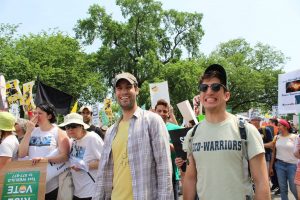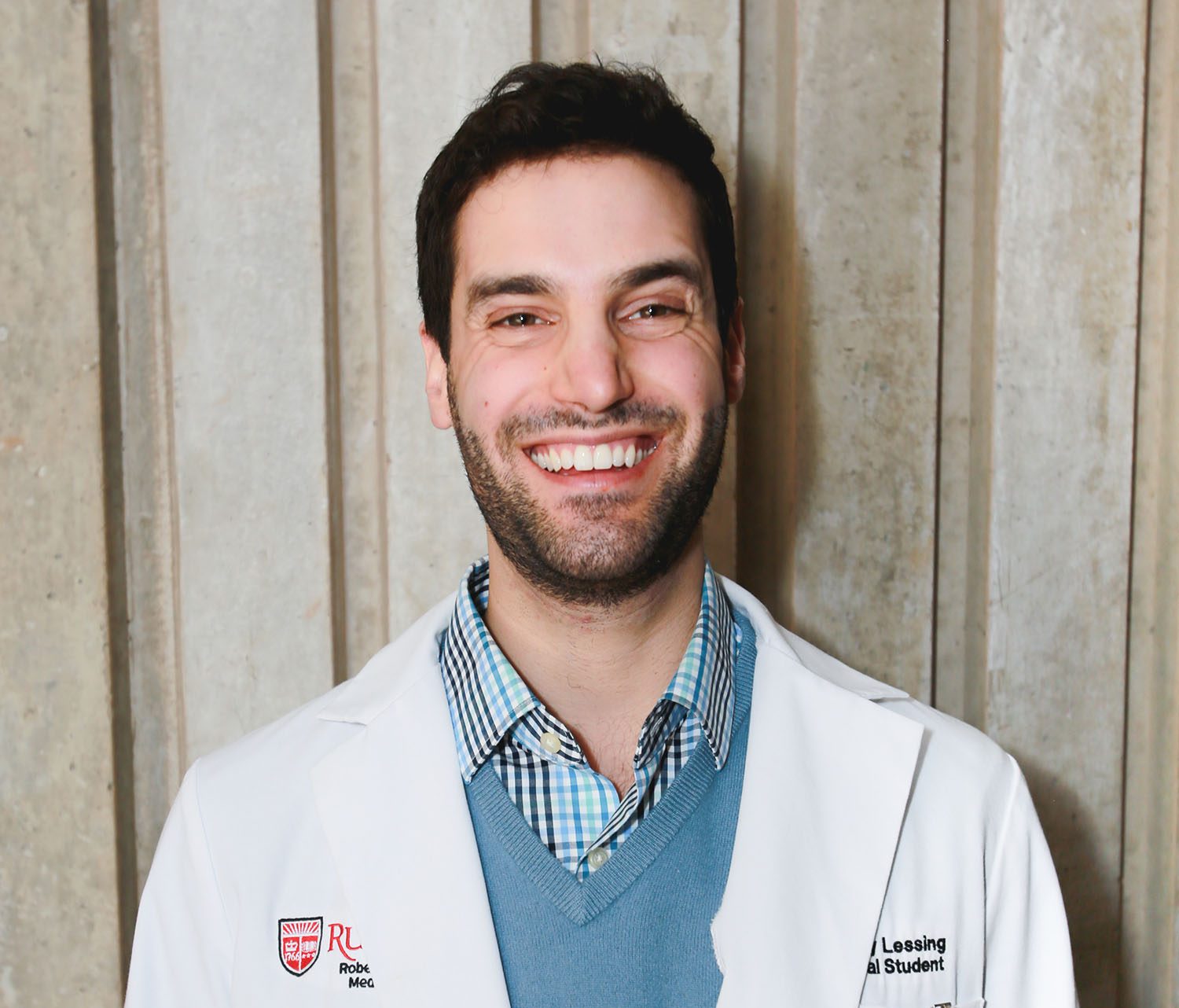“What motivates me to care about the environment? That initial seed was planted in my childhood. Some of my earliest memories are exploring the woods behind my childhood home in hopes of finding squirrels and deer. Another memory: Stealing an almost-dead African violet from my grandmother’s trash can and hiding it in my room until I got it to flower again. Both the wonder of the natural world and the realization that I could do something to positively affect it root many of my life decisions.
As an undergrad I studied ecology and became involved with lots of political activist work around clean energy, the Keystone XL pipeline, carbon neutrality, environmental justice, and more. Later, while working for The Nature Conservancy in Boston, I first met doctors who took the broad view of caring for the environment as one way to care for their patients. Once you know where to look, it’s easy to see all the small ways climate change directly affects human health: deforestation leading to the increase in zoonotic diseases, forest fires leading to negative cardiovascular outcomes, and droughts leading to food insecurity to name a few. The Lancet has a series of reports on Health and Climate Change that’s a great place to start if you’re interested. All of these connections made me realize that there is no human health and environmental health; it’s all one health. I’m invested in understanding these complex systems to protect the people and places I love. I’ve taken that motivation with me in my graduate studies at Rutgers where I research the mechanisms underlying environmental causes of disease.
I’m excited that Rutgers takes direct action for environmental causes on multiple fronts. We have a broad research portfolio conducted across the state, a Climate Task Force charged with putting together a plan for climate neutrality, classmates working on political solutions to environmental justice issues, and more. Being a student at Rutgers today reminds me of walking through the woods as a kid; there’s always something awe-inspiring to explore and discover, and that continually strengthens my resolve to fight for my future, my climate.”

Jake Lessing
MD/PhD student at Robert Wood Johnson Medical School and the Joint Program in Toxicology
